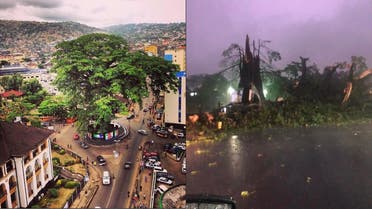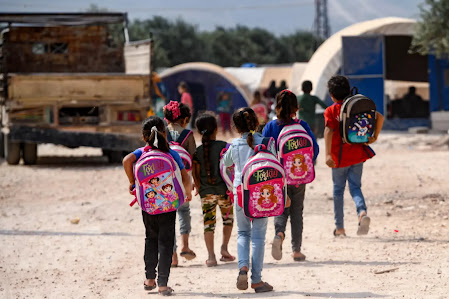The IEA said renewable energy is expanding faster than many people realize, but it warned that investment in fossil fuels is not slowing fast enough to reach goals to slash emissions by 2050.

DW
May 25,2023
Global investment in solar power is expected to overtake investment in oil production for the first time ever this year, the International Energy Agency (IEA) said on Thursday.
The IEA projects investment in solar power to hit $380 billion (€354 billion) in 2023, compared to investments in oil exploration and extraction at $370 billion (€345 billion).
"This crowns solar as a true energy superpower," said Dave Jones, head of data insights at the energy think tank Ember.
But, he added, "the irony remains that some of the sunniest places in the world have the lowest levels of solar investment."
Global investment in solar power is expected to overtake investment in oil production for the first time ever this year, the International Energy Agency (IEA) said on Thursday.
The IEA projects investment in solar power to hit $380 billion (€354 billion) in 2023, compared to investments in oil exploration and extraction at $370 billion (€345 billion).
"This crowns solar as a true energy superpower," said Dave Jones, head of data insights at the energy think tank Ember.
But, he added, "the irony remains that some of the sunniest places in the world have the lowest levels of solar investment."
Renewable energy uptick
Annual investment in clean energy more broadly is expected to hit $1.7 trillion in 2023 — roughly a 25% increase compared to 2021.
Another $1 trillion was expected to be invested in fossil fuels. Spending in this field has increased by 15% since 2021, according to the Paris-based energy watchdog World Energy Investment.
"Clean energy is moving fast — faster than many people realize," said IEA Executive Director Fatih Birol. "For every dollar invested in fossil fuels, about $1.7 are now going into clean energy. Five years ago, this ratio was one-to-one."
Photovoltaic solar panels account for the bulk of green energy investment.
Investment in fossil fuels still rising
Despite the gains for solar and renewable energy in general, the IEA warned that investment in fossil fuels is rising when it should be falling fast in order to achieve net-zero emissions by 2050.
For example, spending on upstream oil and gas is still projected to grow by 7% in 2023, largely due to a handful of national oil companies in the Middle East investing more than they did before the coronavirus pandemic.
The IEA also said that advanced economies and China accounted for more than 90% of new investment in renewables, which presents "a serious risk of new dividing lines in global energy if clean energy transitions don't pick up elsewhere."
Scientists agree that countries need to dramatically reduce greenhouse gas emissions, for example by transitioning away from fossil fuels, in order to avoid catastrophic global warming.
zc/nm (Reuters, AFP, dpa)

















